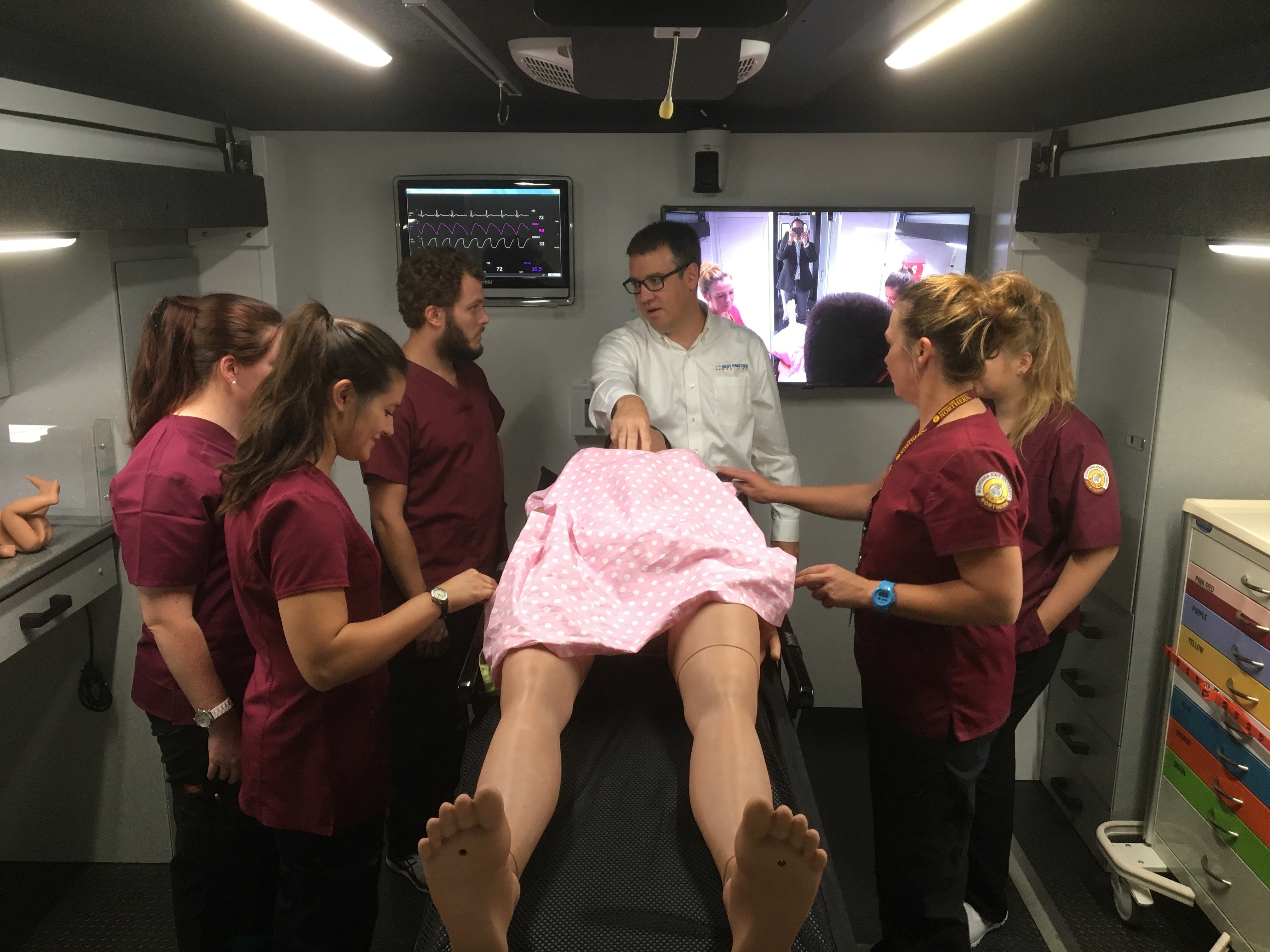
Being prepared for the rare or unexpected medical emergency can be difficult for any clinician or medical team. Mobile high fidelity simulation is changing that, however, helping clinicians stay sharp and be prepared for the infrequent high consequence patient care event. In the following interview we talk with Joe Poole, Director of Education at Best Practice Medicine, about Simulation in Motion Montana -- the largest mobile high fidelity simulation project in the United States. Read or watch the full interview below.
Matt: Introduce yourself and tell us more about your role at Best Practice Medicine.
Joe: My name is Joe Poole and I'm the Director of Education here at Best Practice Medicine and we are contracted with the Simulation in Motion project.
Matt: What is SIM-MT?
Joe: SIM-MT is Simulation in Motion Montana. It was brought to the state by the Helmsley Charitable Trust with a gift to the state which involved three of these massive trucks and all the mannequins included, and some start up funding to get us rolling, and then create a sustainable model for simulation in healthcare in Montana, to reach those really far away places.
Matt: Who is your primary target audience and who are you helping with this SIM-MT project?
Joe: We travel around and our primary goal, our primary client is to take care of the small, critical access hospitals and rural EMS, Emergency Medical Services groups.
Matt: What's your favorite part of a simulation?
Joe: My favorite part of the simulation is two places in the simulation. One is that during the simulation, there's a moment when the learner, you can just tell that the learner has crossed over and this sim has become as real as possible for them. And then in the debriefing, there's always at least a few of those ah-ha moments where something just sinks, some knowledge, some understanding has become much more fortified because of the simulation itself.
Matt: Why is simulation training in medical education so important?
Joe: Simulation's really important for training in healthcare because it allows us to learn at a much deeper level that lasts much, much longer because of the immersive quality of the education.
Matt: What can the average person do to assist or help this project?
Joe: The average lay-person can definitely help by just sharing the vision of what we're doing, the goals of what we're doing, and that is bringing high-quality, immersive education to the smallest, most remote places in Montana.

